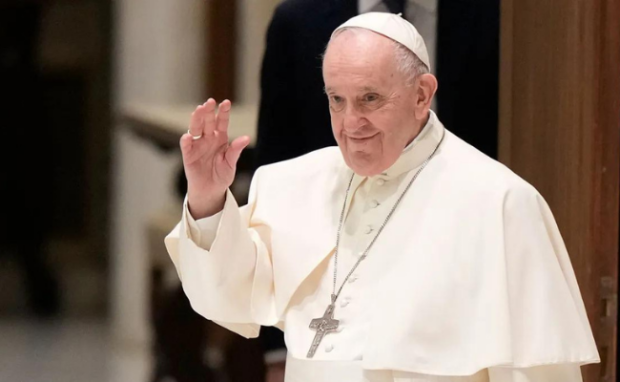Pope calls for responsible use of artificial intelligence
Pope Francis announced the theme for World Day of Peace 2024: “Artificial Intelligence and Peace.” Also, he emphasized the potential impact of AI on humanity and called for its responsible use. Ars Technica said the Holy See cited alignment, a popular AI concept that “aligns” artificial intelligence outputs with positive human needs.
The impact of artificial intelligence continues to grow as the largest religion in the world recognizes its growth. Pope Francis acknowledges its significance must be the theme of next year’s World Youth Day. This technology can only advance technology to a brighter future with proper discussion and guidance.
This article will discuss Pope Francis’ statement regarding artificial intelligence. Then, I will cover the AI benefits and risks World Youth Day may feature.
What did Pope Francis say about AI?

Photo Credit: nbcboston.com
Most may not relate artificial intelligence with something profoundly human as religion. Yet, the leader of the largest religion sees its potential impact on Christian lives.
Hence, the Vatican announced the next Message of the World Day of Peace is “Artificial Intelligence and Peace. Then, it shared the following message:
“The remarkable advances made in the field of artificial intelligence are having a rapidly increasing impact on human activity, personal and social life, politics, and the economy. Pope Francis calls for an open dialogue on the meaning of these new technologies, endowed with disruptive possibilities and ambivalent effects.”
“He recalls the need to be vigilant and to work so that a logic of violence and discrimination does not take root in the production and use of such devices at the expense of the most fragile and excluded: injustice and inequalities fuel conflicts and antagonisms.”
“The urgent need to orient the concept and use of artificial intelligence in a responsible way so that it may be at the service of humanity and the protection of our common home requires that ethical reflection be extended to the sphere of education and law.”
You may also like: G7 leaders call for AI regulations
“The protection of the dignity of the person, and concern for a fraternity effectively open to the entire human family, are indispensable conditions for technological development to help contribute to the promotion of justice and peace in the world.”
Reuters says the Pope acknowledged being “a disaster” with technology. Yet, he called the internet, social media platforms, and text messages “a gift of God.”
In 2020, the Vatican collaborated with tech giants IBM and Microsoft to promote ethical artificial intelligence development. Moreover, he petitioned for the regulation of intrusive technologies like facial recognition.
What are the benefits and risks of AI?

Photo Credit: theverge.com
Pope Francis isn’t exaggerating the potential harm of artificial intelligence. After all, AI-generated images of him wearing expensive clothes became trending online.
The untrained eye might struggle to see the usual flaws of AI pictures, such as missing fingers or merged accessories. As a result, some may think the Holy See went around in public wearing lavish clothing.
Prominent tech leaders signed an open letter to pause AI development. SpaceX CEO Elon Musk, Apple co-founder Steve Wozniak, and other prominent names asked the public to consider these points:
“Should we let machines flood our information channels with propaganda and untruth? Should we automate away all the jobs, including the fulfilling ones?”
“Must we develop nonhuman minds that might eventually outnumber, outsmart, obsolete, and replace us? Should we risk the loss of control of our civilization?”
That is why they asked AI firms to suspend research and development and six months. The delay could help governments craft regulations for these tools.
Microsoft co-founder Bill Gates said pausing AI development will not solve these challenges. Instead, we must continue it while monitoring its progress properly.
You may also like: The impact of AI on Filipino jobs
Using this technology responsibly could bring prosperity to a nation. For example, DOST-PCIEERD Executive Director Dr. Enrico C. Paringit met with AI experts to turn the Philippines into a global AI data center.
He said his department is developing ways to apply artificial intelligence in the country. He and his team focus on using it for energy and utilities, scientific innovations, and other sectors.
“In DOST, we’re always looking out for opportunities, for industries, to come in and participate in the innovation ecosystem in the land,” Paringit stated. Moreover, he said that the DOST allocated roughly ₱429 million for AI project proposals from 2018 to 2022.
Conclusion
Pope Francis announced the upcoming World Youth Day theme is “Artificial Intelligence and Peace.” Also, he called for the responsible use of this technology.
The Holy See acknowledges the positive transformative impact of AI. However, people must ensure their outputs align with the good of humanity.
As a result, the Age of AI could bring prosperity and peace to everyone worldwide. Learn more about the latest digital tips and trends at Inquirer Tech.